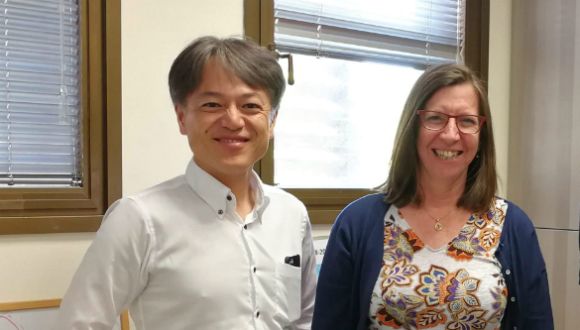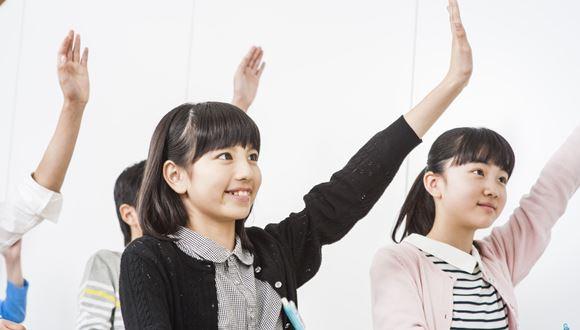Calling for Attention
For some years, Shonan Seminar (SHO-zemi), a Japanese network of over 230 K-12 learning centers, has been trying to assess their pupils’ concentration and motivation. They understand that each child’s attention capabilities are different, but how can these be measured precisely? And harder still, how can they be improved on the individual rather than collective level?
To achieve a personalized “attention profile” for each student, SHO-zemi sought out Prof. Lilach Shalev, who runs the Attention Lab at Tel Aviv University’s Jaime and Joan Constantiner School of Education. Shalev and her team are developing novel methods to not only gauge a person’s attention and cognitive control, but also train and enhance it.
The research of Shalev and her 15 master’s and doctoral students dovetails with one of the most burning challenges in the field of education today: How to personalize learning?
Their work – and indeed the partnership between the Attention Lab and SHO-zemi – feeds into TAU’s Minducate Center for interdisciplinary research on the neuroscience of learning. Minducate is a jointly run by TAU’s Sagol School of Neuroscience and TAU Online–Innovative Learning Center.
Attention, please
In previous years, Shalev focused on learners with ADD and ADHD across the age groups, assessing their cognitive function and control. Now she has widened her investigations to include normative learners.
“A person doesn’t have to have an attention deficit to be affected by their attention capabilities,” says Shalev.
Attention Lab researchers measure four different types of attention using special software they developed and fine-tuned. The first is “sustained attention” which involves maintaining focus
on a repetitive task for a long period of time. The second is “selective-spatial attention” – the ability to focus on a location-specific person or object while filtering out adjacent distractions. The third is “orienting attention,” which is needed when we have to shift our attention from one stimulus to another in a precise and effective way.
The fourth type is called “executive attention” and is the trickiest for the classroom. Executive attention asks learners to overcome a habitual response when challenged with something new, complex or confusing – such as a new way of interpreting a story or an alternative technique for solving an algebra problem. It’s tricky because it can cause mental conflict as the brain struggles to let in new ideas, or to balance speed-of-absorption with accuracy-of-results.
Shalev and her team have also integrated brain imaging experiments into their testing. Carried out at TAU’s Alfredo Federico Strauss Center for Computational Neuroimaging, the experiments shine a light, literally, on neural mechanisms related to attention.
Ultimately Shalev wishes to help the educational system better serve learners. She and her team are developing training exercises, both computerized and non-computerized, to enhance a student’s attention. Their broader mission is to match every personal attention profile with a personalized attention training program, but in a way that can be scaled up for an entire classroom, school, or even national education system.
SHO-zemi schools: A living laboratory
Through the Japanese collaboration, Shalev is now testing her assessment tools and interventions in a learning environment that embraces advanced technology and progressive teaching methods.
SHO-zemi’s goal is to apply Shalev’s expertise toward improving student attention and executive function. “A critical aspect of this collaboration is a focus on practical and scalable outcomes that can impact students’ academic performance and empower teachers, even after the research is completed,” says Mr. Yoshi Okamoto from SHO-zemi, who spearheaded the partnership.
“We’re excited by the opportunity to improve the way students learn across cultures and throughout their lifetimes,” adds Okamoto, who is overseeing both the visits of Shalev in Japan and the training of SHO-zemi staff on the Tel Aviv University campus.
Preliminary studies in Japan last year showed that sustained attention correlates with good reading comprehension – a finding that reproduced similar results in Israel. This year, together with the TAU Attention Lab team, SHO-zemi is creating personal attention profiles for 7th graders at their educational centers in the Greater Tokyo area. Customized recommendations for learning will be provided for each student based on TAU-developed attention training software.
“I believe every person can dramatically improve learning efficiency when taking into account his or her cognitive strengths and weaknesses,” concludes Prof. Shalev.
 Shonan Seminar President Mr. Ken Fukumura together with Prof. Shalev
Shonan Seminar President Mr. Ken Fukumura together with Prof. Shalev






